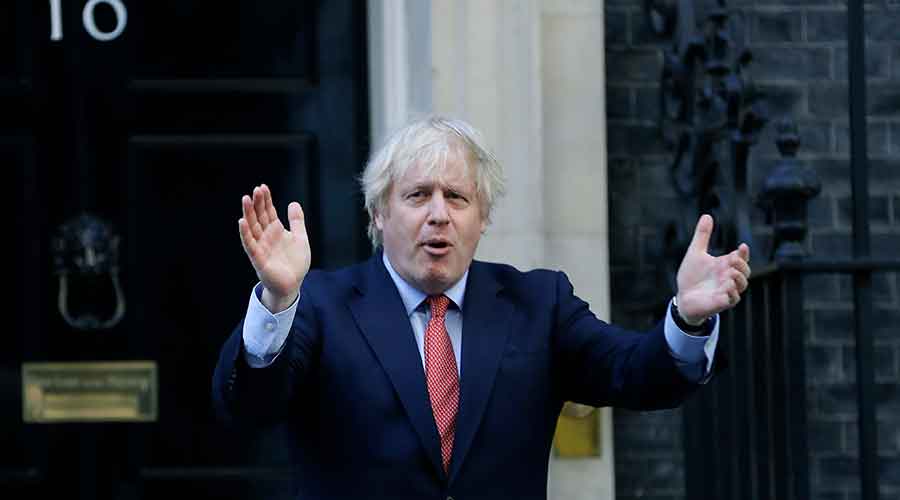The Prime Minister, Boris Johnson, and the NHS leaders appear to be at odds over how to stop the omicron wave overwhelming hospitals in England which are said to be under “exceptional strain” and have declared “critical incidents”.
Boris, who has ordered troops to help hospitals in London cope with mounting staff shortages, believes the NHS can “ride out” the omicron crisis. Visiting a vaccination centre in Northampton, Boris said: “I appreciate that the NHS is under huge pressure. We’ve had wave after wave of Covid and our NHS has responded magnificently.”
He argued staff numbers had been increased, and that, combined with calling in retired staff and volunteers, would ease the strain.
He said omicron was milder than other variants but said: “We’ve got to give the NHS all the help we can through the next period.”
Boris is under pressure from the right wing of the Conservative Party which has warned him that his Premiership may be challenged if he brings in further restrictions over and above those currently in force. He has also been embarrassed by new WhatsApp revelations on how his Downing Street flat was redecorated with money from a Tory donor — who probably expected something in return.
Figures leaked to the Health Service Journal on Friday reveal that staff absences at NHS England went from 80,000 on January 2 to just under 120,000 on January 5 — 20 per cent higher than the peak last January.
Around 62,000 of the total 120,000 absences were people who had tested positive for Covid or were self-isolating.
Dr Chaand Nagpaul, chair of the council of the British Medical Association, told Sky News on Friday: “We have never known this level of staff absence before.”
He said: “Every winter of course, the NHS has additional pressures, but I don’t think anyone who has worked in the NHS has experienced this level of absence of their colleagues and we’re feeling it in very real time because doctors and nurses and healthcare workers are having to cover for their absent colleagues – that’s adding additional, exceptional strain.”
He added: “The reality of the army having been drafted in to London, the reality of 24 hospitals having declared critical incidents, the reality of having some hospitals having to cancel all their routine surgery, the reality of general practices having to cancel clinics on the day.
“I’m a GP (general practitioner), I’ve never known it this bad. We’re having to literally contact patients without notice that the staff member or a doctor or nurse just isn’t in today because they’re self-isolating.”
Nagpaul, the first Indian to head the BMA, should have received a knighthood in the New Year’s Honours List but was conspicuously omitted —possibly because he has kept the government on its toes throughout the pandemic.
Commenting on the figures for staff absences, Prof. Stephen Powis, the NHS national medical director, said: “Omicron means more patients to treat and fewer staff to treat them. Around 10,000 more colleagues across the NHS were absent each day last week compared with the previous seven days and almost half of all absences are now down to Covid.
“While we don’t know the full scale of the potential impact this new strain will have, it’s clear it spreads more easily and, as a result, Covid cases in hospitals are the highest they’ve been since February last year — piling even more pressure on hard working staff.”
The transport secretary, Grant Shapps, said ministers were trying to find the right compromise between imposing further restrictions and not allowing hospitals to be “overrun” given new cases of the virus have reached historically high levels.
He added it was “crazy” some people, anti-vaxxers included, were still not getting vaccinated given the increased protection a booster jab offers against the Omicron variant, but that the government would not take the “draconian approach” of making vaccines mandatory.
What is worrying is that Covid cases are falling among those aged 18 to 35 but rising in older groups, including the over-75s. Dr Claire Steves of King’s College London said: “This is the group we need to protect as they are the most likely to be hospitalised.”











